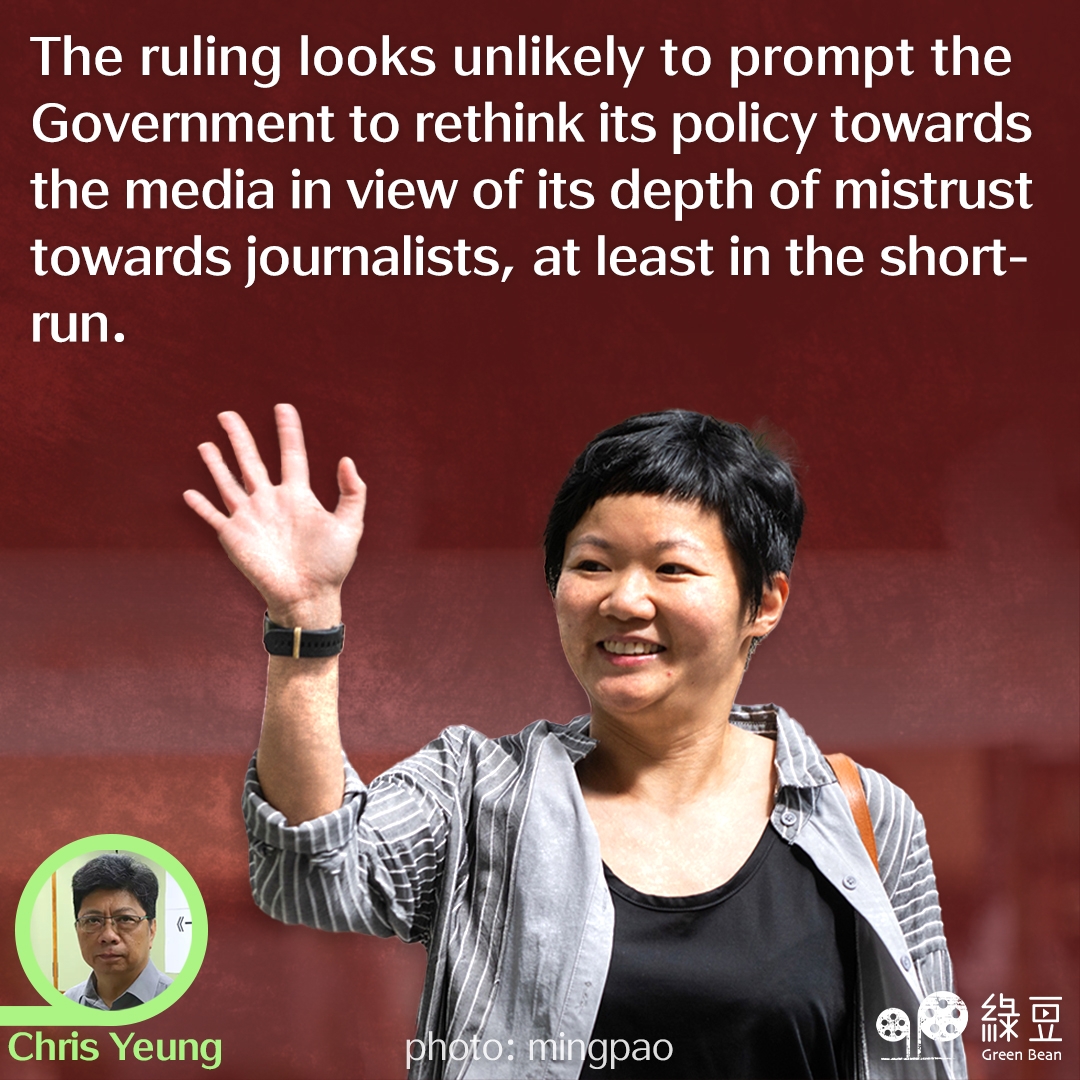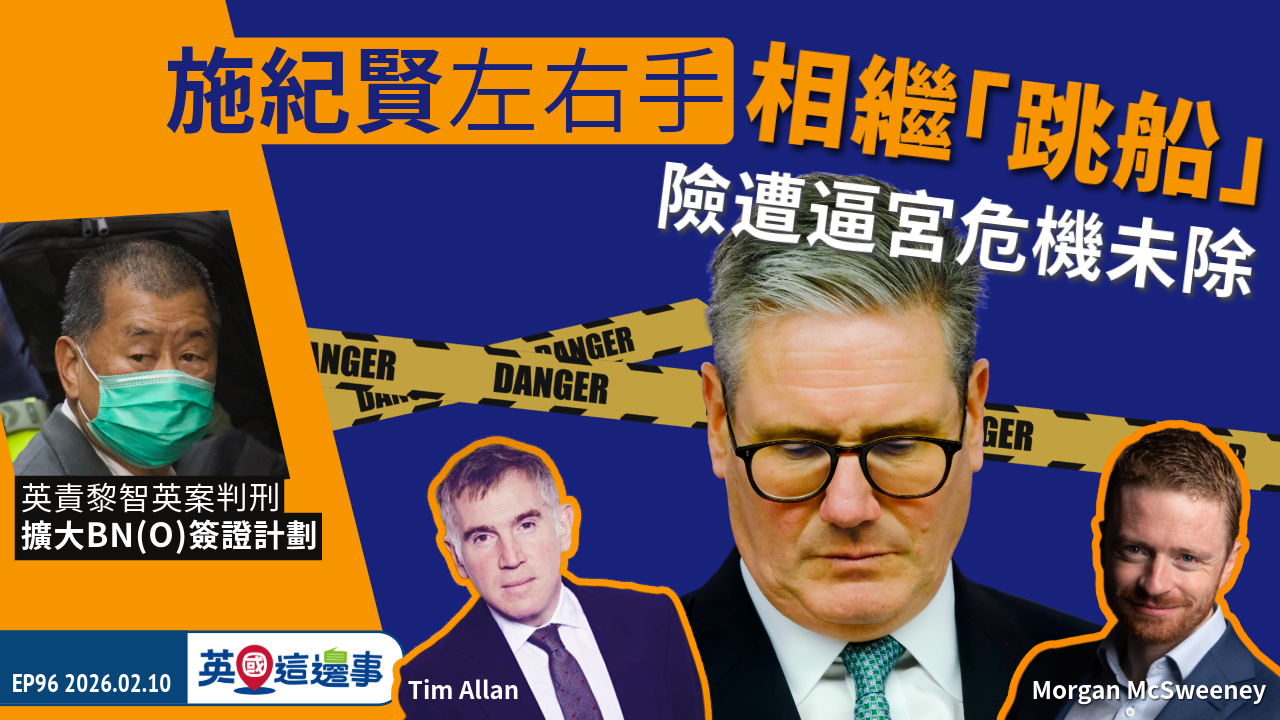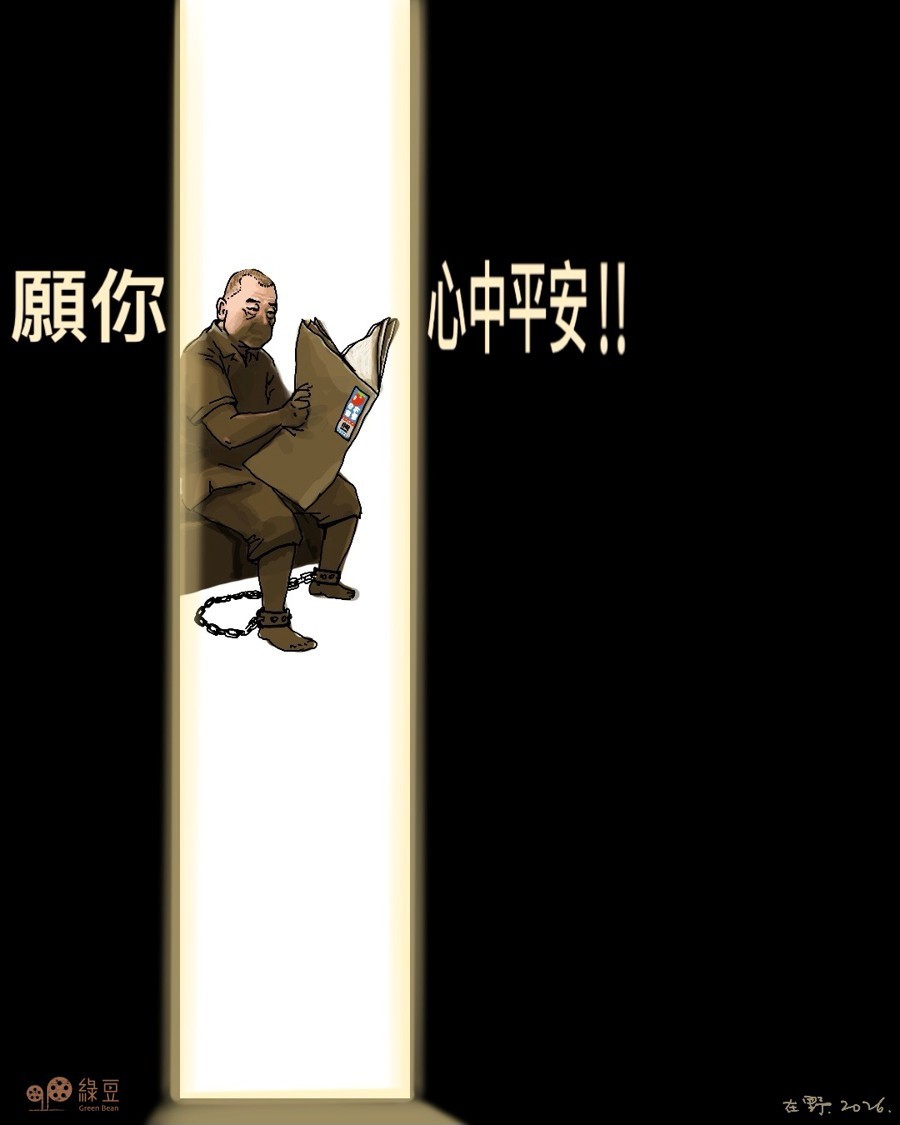Bao Choy victory a small consolation

An unanimous ruling of Hong Kong’s final appellate court last week in favour of ex-RTHK journalist Bao Choy in her appeal against her conviction of breaching the law over a vehicle search for a documentary about the 2019 anti-government protests has come as a piece of long-awaited good news for journalists and many other people in the city.
Coming amidst grave fears about the withering of civil liberties, the decision of the Court of Final Appeal in upholding the constitutional right of journalists to conduct “bona fide” reporting has helped lift up the mood of journalists, albeit temporarily. Importantly, it has helped boost confidence in the judiciary in protecting their right of reporting.
But admittedly, it is too little, if not also too late, in salvaging public confidence in press freedom.
The reason is simple. Despite the fact that the Government may now have to relax the restrictions over reporters’ search of certain public data in light of the CFA ruling, the curbs on civic liberties including press freedom showed no signs of easing. The opposite is true.
One day after the ruling of the Bao Choy case was given, the justice secretary filed an application at the High Court for an injunction against “Glory of Hong Kong,” a theme song for the protests ignited by a now-shelved extradition bill in 2019.
The court is scheduled to hear a government application to restrain those harbouring criminal intent from “broadcasting, performing, printing, publishing, selling, offering for sale, distributing, disseminating, displaying or reproducing in any way” the 2019 protest theme song.
If approved by the court, the song, written by an anonymous person, will become the first song to be banned in the city after the handover. It looks certain to blow more chilly winds across the society. The hitherto fun netizens could enjoy in the world of the internet may become a nightmare.
The shock government move came two days after the Police deployed thousands of officers to maintain order at and around Victoria Park on Sunday, which marks the 34th anniversary of the June 4 crackdown.
More than 20 people were taken away by the Police for allegedly breaching such laws as disruption of peace and incitement intent. A luxurious vehicle with car plate number “US 8964” that appeared in Causeway Bay was stopped and towed away by the Police without. No reason was given, but everyone knows why.
In sharp and ironic contrast to the heightened tension in areas surrounding the football pitches in the evening of June 4, dozens of pro-China fraternity associations were hosting a food fair-cum-gala show at the pitches, which had been the venue of June 4 candle vigil for three decades since 1989.
Meanwhile, the Hong Kong Public Opinion Research Institute said it has canceled the release of survey results on Hongkongers’ views of the Tiananmen crackdown, citing “suggestions” made by the “you-know-which “relevant government department(s).” The annual survey was originally scheduled to be released on last Tuesday (June 6).
In a related development, the pro-democracy League of Social Democrats said the personal bank accounts of four members had been terminated by HSBC, Hang Seng Bank and the Bank of China. The party said earlier HSBC closed three bank accounts they had used for receiving donations without giving reasons.
The string of political news has sent more jitters in the city’s social and political spheres at a time when it enters the sensitive months of June and July about four years after the now-shelved extradition bill sparked protracted fierce protests.
Against the background of a suffocating environment, the Bao Choy ruling has emerged as a small consolation to journalists. If honoured by the Government, it will be significant in restoring reporters’ right to conduct data search.
But the ruling looks unlikely to prompt the Government to rethink its policy towards the media in view of its depth of mistrust towards journalists, at least in the short-run.
If the CFA ruling shows the functioning of the judiciary’s self-correction mechanism, the government move to take Choy to court for having conducted “bona fide” investigative journalism, in the words of a CFA judge, has raised serious questions about the decision-making of the Transport Department and Department of Justice.
Questions that are still left unanswered include why the relevant departments have failed to recognise the right of journalists to perform “bona fide” journalism work in their policies on public data search. To add insult to injury, Choy was charged with making false declarations in her search application.
The Bao Choy case has laid bare the grim reality of the state of press freedom in the city. With laws on national security and seditious publications already hanging over their heads, the press is facing curbs of various kinds such as data search and reporting in public places, not to mention the problem of self-censorship.
The assortment of legislative and administrative curbs and political pressure have cast a long shadow on the future of the Hong Kong media.
▌[At Large] About the Author
Chris Yeung is a veteran journalist, a founder and chief writer of the now-disbanded CitizenNews; he now runs a daily news commentary channel on Youtube. He had formerly worked with the South China Morning Post and the Hong Kong Economic Journal.





